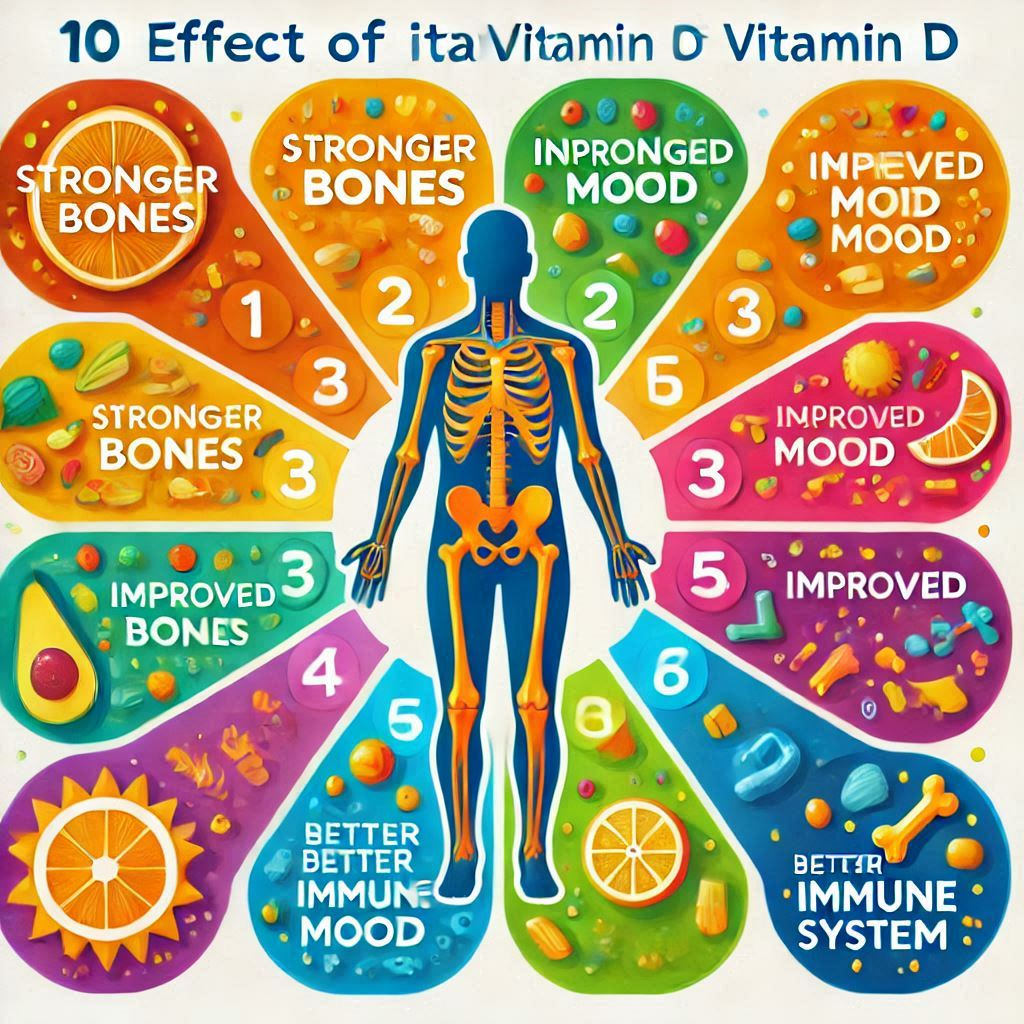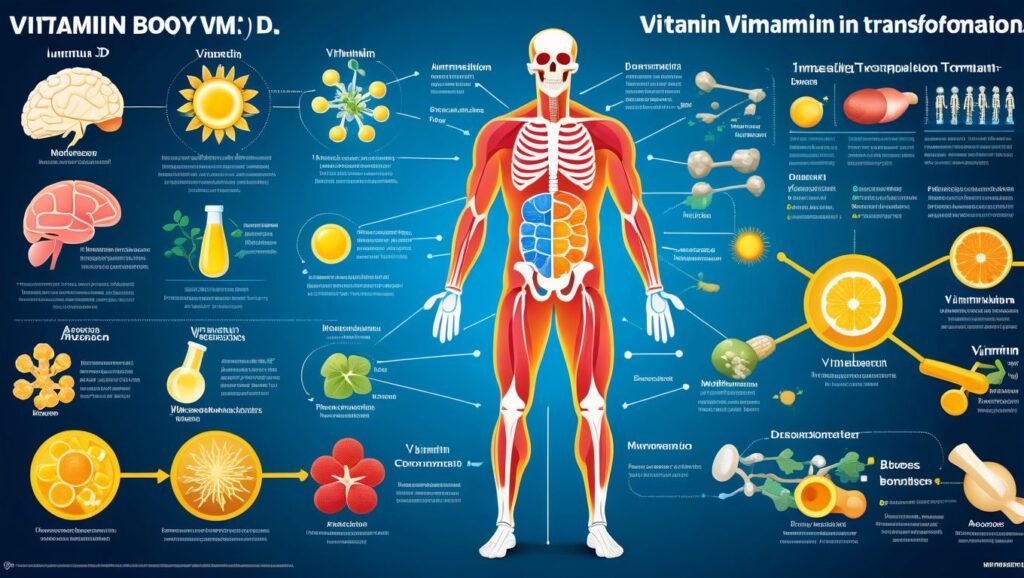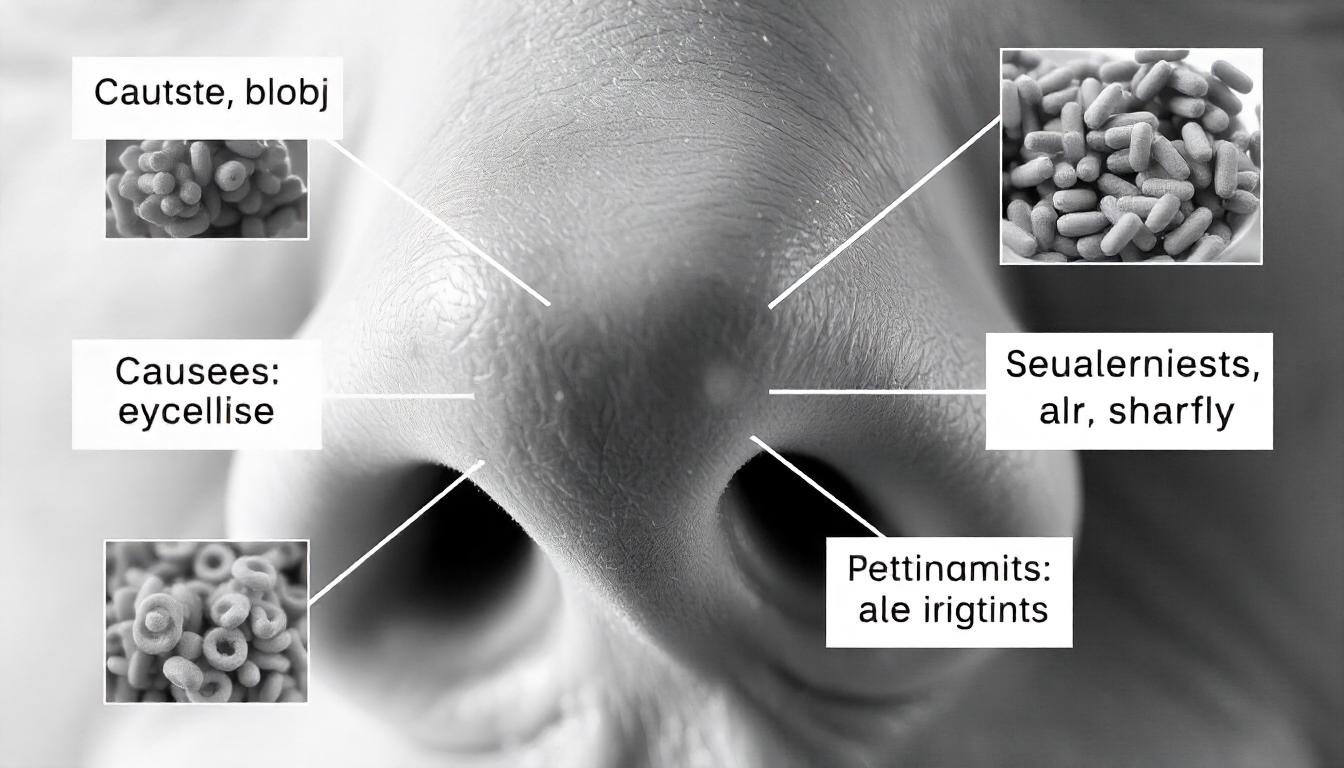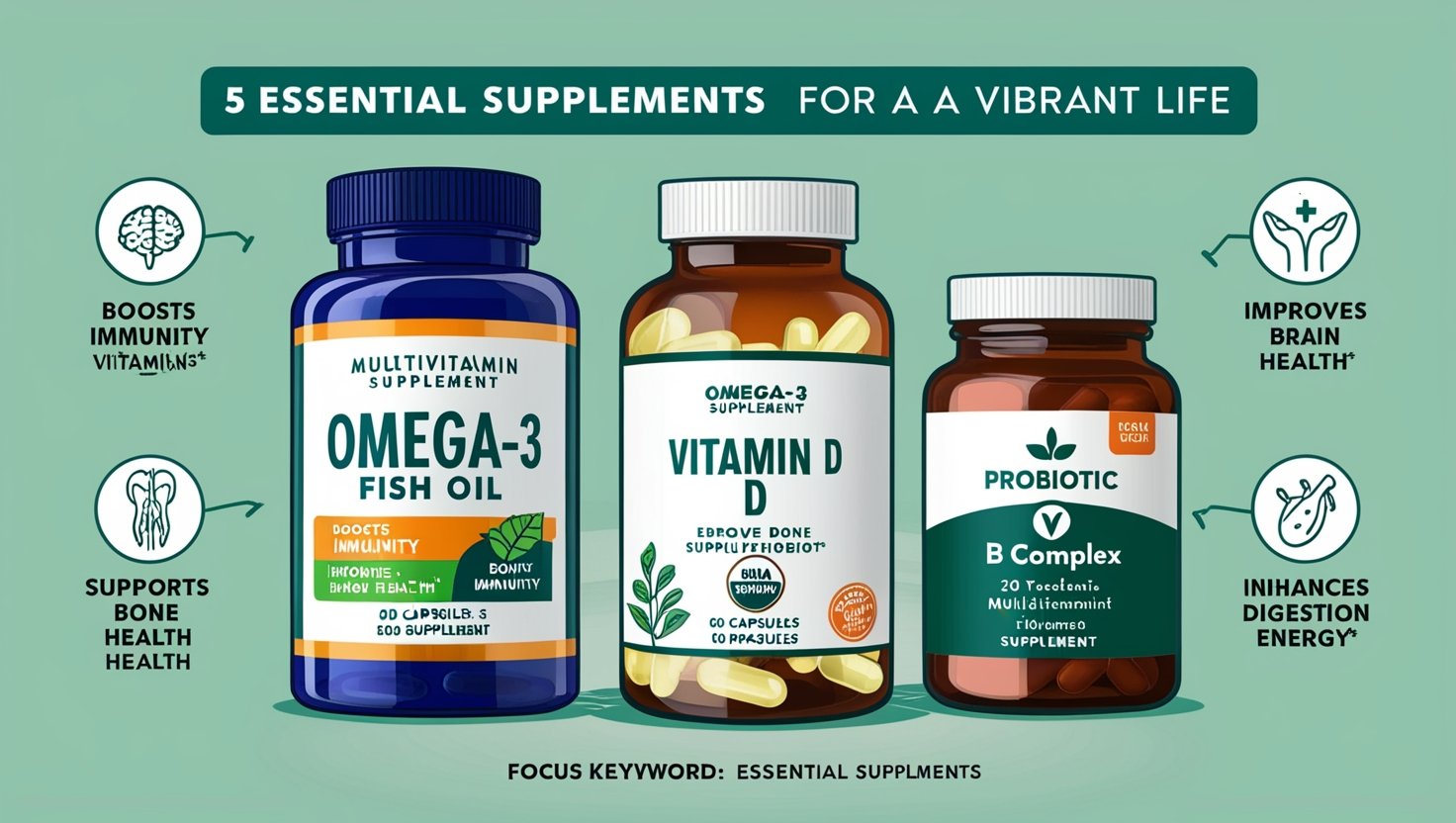
The Amazing 10 Effects of Vitamin D
The Amazing 10 Effects of Vitamin D
Discover the amazing 10 effects of Vitamin D on your health, including its benefits for immunity, bone health, mood, and more. Learn how to prevent deficiency and maintain optimal wellness.

Introduction
Overview of Vitamin D and Its Significance for Overall Health
Vitamin D is a fat-soluble vitamin that is essential for maintaining overall health. It plays a crucial role in various bodily functions, including bone health, immune system performance, mood regulation, and cardiovascular health. Unlike other vitamins, vitamin D can be synthesized by the body when the skin is exposed to sunlight. However, it can also be obtained from dietary sources and supplements.
Brief Explanation of the Importance of Vitamin D in the Diet
Incorporating Vitamin D into your diet is vital for ensuring that your body functions optimally. A deficiency in Vitamin D can lead to a range of health issues, including weakened bones, compromised immune function, and mood disorders. Consuming a balanced diet rich in Vitamin D can help prevent these issues and promote overall well-being.
Effect 1: Enhances Bone Health
Explanation of How Vitamin D Supports Bone Health and Prevents Osteoporosis
Vitamin D is essential for maintaining strong and healthy bones. It facilitates the absorption of calcium and phosphorus from the digestive tract, which are critical minerals for bone formation and maintenance. Without adequate Vitamin D, the body cannot effectively absorb calcium, leading to weakened bones and an increased risk of fractures. Osteoporosis, a condition characterized by brittle and fragile bones, is often associated with vitamin D deficiency.
Importance of Vitamin D for Calcium Absorption and Bone Strength
Ensuring adequate intake of vitamin D is crucial for preserving bone health and preventing osteoporosis. Foods rich in Vitamin D, such as fatty fish, fortified dairy products, and egg yolks, can help maintain bone strength and reduce the risk of bone-related disorders.
Effect 2: Boosts Immune System
How Vitamin D Strengthens the Immune System and Helps Fight Infections
Vitamin D plays a vital role in supporting the immune system. It enhances the pathogen-fighting effects of monocytes and macrophages, white blood cells that are critical for immune defense. Vitamin D also decreases inflammation and modulates the immune response, helping the body fight off infections more effectively. A deficiency in Vitamin D can weaken the immune response, making the body more susceptible to infections and illnesses.
Role of Vitamin D in Maintaining a Healthy Immune Response
Adequate levels of vitamin D are necessary for a robust immune system. Consuming foods rich in Vitamin D, such as salmon, mackerel, and fortified cereals, can help strengthen the immune response and protect against illnesses.

Effect 3: Improves Mood
Benefits of Vitamin D for Mental Health, Including Reducing Depression and Anxiety
Vitamin D is known for its benefits to mental health. It plays a role in regulating mood and warding off depression and anxiety. Vitamin D receptors are present in areas of the brain that are involved in mood regulation, and adequate levels of Vitamin D are necessary for the production of serotonin, a neurotransmitter that contributes to feelings of well-being and happiness. Studies have shown that individuals with low levels of vitamin D are more likely to experience depression and anxiety.
Importance of Vitamin D for Maintaining a Positive Mood
Incorporating Vitamin D into your diet and lifestyle can help maintain a positive mood and reduce the risk of mood disorders. Sun exposure, along with foods rich in Vitamin D, such as fortified milk and orange juice, can provide the necessary nutrients for mental well-being.

Effect 4: Supports Heart Health
Explanation of How Vitamin D Contributes to Cardiovascular Health
Vitamin D plays a significant role in maintaining cardiovascular health. It helps regulate blood pressure, reduces inflammation, and improves endothelial function, which is the lining of the blood vessels. Adequate levels of vitamin D are associated with a lower risk of cardiovascular diseases, such as hypertension, heart attack, and stroke. A deficiency in Vitamin D can lead to increased blood pressure and a higher risk of heart-related issues.
Role of Vitamin D in Reducing the Risk of Heart Disease
Ensuring sufficient intake of vitamin D is crucial for protecting heart health and reducing the risk of cardiovascular diseases. Foods rich in Vitamin D, such as tuna, sardines, and fortified plant-based milk, can help support cardiovascular function and promote overall heart health.
Effect 5: Enhances Muscle Function
How Vitamin D Supports Muscle Function and Reduces the Risk of Falls
Vitamin D is essential for maintaining healthy muscle function. It helps regulate calcium levels in the blood, which is necessary for muscle contraction and strength. Adequate levels of Vitamin D can improve muscle strength and coordination, reducing the risk of falls and fractures, especially in older adults. A deficiency in Vitamin D can lead to muscle weakness and an increased risk of falls.
Importance of Vitamin D for Maintaining Muscle Strength and Coordination
Incorporating Vitamin D into your diet and lifestyle can help maintain muscle strength and coordination. Sun exposure, along with foods rich in Vitamin D, such as fortified yogurt and cheese, can provide the necessary nutrients for optimal muscle function.
Effect 6: Promotes Weight Loss
Explanation of How Vitamin D Can Aid in Weight Management
Vitamin D can play a role in weight management and promoting weight loss. It helps regulate the production of hormones that influence appetite and fat storage. Adequate levels of vitamin D can improve insulin sensitivity, which is crucial for maintaining healthy blood sugar levels and preventing weight gain. Additionally, Vitamin D can enhance the body’s ability to burn fat, making it easier to lose weight and maintain a healthy weight.
Role of Vitamin D in Regulating Metabolism and Reducing Body Fat
Vitamin D is involved in various metabolic processes that influence body weight and fat distribution. It helps regulate the production of leptin, a hormone that signals the brain to stop eating when you are full. Adequate levels of vitamin D can improve leptin sensitivity, reducing overeating and promoting weight loss. Foods rich in Vitamin D, such as mushrooms, fortified tofu, and cod liver oil, can help support weight management and overall metabolic health.
Effect 7: Reduces Inflammation
How Vitamin D Helps Reduce Inflammation and Support Overall Health
Vitamin D plays a crucial role in reducing inflammation in the body. It helps modulate the immune system, preventing it from overreacting and causing chronic inflammation. Vitamin D inhibits the production of pro-inflammatory cytokines and promotes the production of anti-inflammatory cytokines, which help reduce inflammation and support overall health. By maintaining adequate levels of Vitamin D, you can help prevent chronic inflammatory conditions such as arthritis, inflammatory bowel disease, and autoimmune disorders.
The importance of Vitamin D for Preventing Chronic Inflammatory Diseases
Chronic inflammation is a key factor in the development of many diseases, including heart disease, diabetes, and cancer. Ensuring sufficient intake of Vitamin D can help reduce the risk of these conditions by keeping inflammation in check. Foods rich in Vitamin D, such as fatty fish, fortified dairy products, and egg yolks, can help support a healthy inflammatory response and promote overall well-being.
Effect 8: Supports Respiratory Health
Explanation of How Vitamin D Supports Respiratory Health and Prevents Infections
Vitamin D is essential for maintaining the health of the respiratory system. It helps keep the mucous membranes in the respiratory tract healthy, which acts as a barrier against pathogens. Adequate levels of vitamin D can reduce the risk of respiratory infections, such as pneumonia and bronchitis, by enhancing the immune response and maintaining the integrity of the respiratory epithelium. Vitamin D also helps reduce inflammation in the airways, which can improve respiratory function and prevent chronic respiratory conditions.
Role of Vitamin D in Maintaining Healthy Lungs
Vitamin D plays a crucial role in maintaining healthy lungs by supporting the production and function of epithelial cells that line the respiratory tract. These cells help trap and remove pathogens and particles, preventing infections and promoting overall respiratory health. Ensuring adequate intake of Vitamin D through sun exposure and dietary sources can help support lung health and reduce the risk of respiratory infections.
Effect 9: Enhances Cognitive Function
How Vitamin D Contributes to Cognitive Function and Brain Health
Vitamin D plays a significant role in cognitive function and brain health. It is involved in the production of neurotransmitters, which are essential for communication between nerve cells. Vitamin D also supports the development and maintenance of the central nervous system, promoting cognitive function and mental clarity. Adequate levels of vitamin D are necessary for preventing cognitive decline and supporting overall brain health.
Importance of Vitamin D for Preventing Cognitive Decline
Ensuring sufficient intake of vitamin D is crucial for maintaining cognitive function and preventing cognitive decline. Vitamin D helps protect the brain from oxidative stress and inflammation, which can contribute to neurodegenerative diseases such as Alzheimer’s. By incorporating vitamin D-rich foods, such as salmon, mackerel, and fortified cereals, into your diet, you can support brain health and maintain cognitive function as you age.
Effect 10: Promotes Skin Health
Benefits of Vitamin D for Skin Health, Including Reducing Acne and Promoting Healing
Vitamin D is known for its benefits to skin health. It promotes cell turnover, which helps keep the skin smooth and free from dead skin cells. Vitamin D also helps reduce acne by preventing the clogging of hair follicles with oil and dead skin cells. Additionally, it supports the production of collagen, which is essential for maintaining skin elasticity and reducing the appearance of wrinkles. Vitamin D also has antioxidant properties that can help reduce skin inflammation and promote healing.
Importance of Vitamin D for Maintaining Healthy Skin
Incorporating Vitamin D into your skincare routine and diet can help maintain healthy, youthful-looking skin. Foods rich in Vitamin D, such as sweet potatoes, carrots, and spinach, can provide the necessary nutrients for glowing skin. Sun exposure is also a natural way to boost vitamin D levels and support skin health.
Conclusion
Recap of the 10 Amazing Effects of Vitamin D
- Enhances Bone Health
- Boosts Immune System
- Improves Mood
- Supports Heart Health
- Enhances Muscle Function
- Promotes Weight Loss
- Reduces Inflammation
- Supports Respiratory Health
- Enhances Cognitive Function
- Promotes Skin Health
Encouragement to Include Vitamin D-Rich Foods and Supplements in the Diet
Incorporating vitamin D-rich foods into your diet is essential for reaping the numerous health benefits it offers. Foods such as fatty fish, fortified dairy products, and egg yolks are excellent sources of Vitamin D. Additionally, spending time in the sun can help boost your vitamin D levels naturally. If you have difficulty getting enough Vitamin D from food and sunlight, consider taking a Vitamin D supplement to ensure you meet your daily requirements.
Final Thoughts on the Importance of Maintaining Adequate Vitamin D Levels for Overall Health
Maintaining adequate vitamin D levels is crucial for overall health and well-being. This essential nutrient supports various bodily functions, from bone health and immune response to mood regulation and cognitive function. By prioritizing a diet rich in Vitamin D and ensuring sufficient sun exposure, you can protect your body from chronic diseases, promote healthy development, and enhance your quality of life.






2 Comments
Pingback:
Pingback: